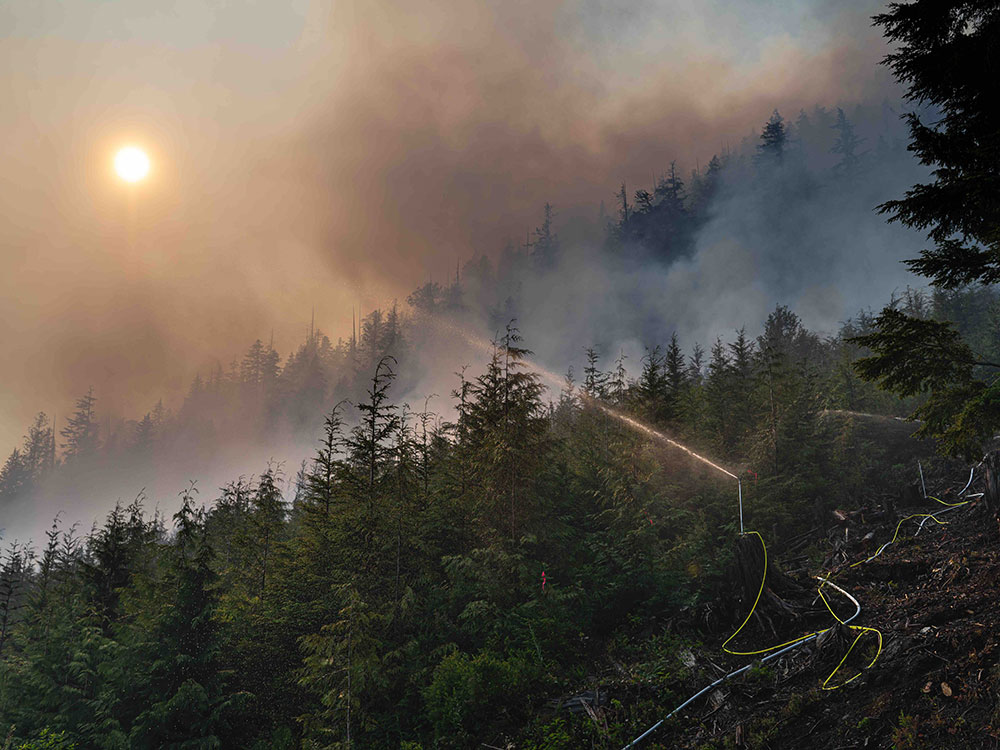The year 2023 has become the most destructive year on record for wildfires in British Columbia, burning through 1.49 million hectares as of July 24. This is over 10 times the average area burned annually in the past decade.
This year has also become the most destructive year on record for Canada, with wildfires burning through 12.3 million hectares across the country as of July 27.
And the season isn’t even over.
In B.C., the Donnie Creek wildfire is responsible for the majority of the area burned. It has become the largest fire in the province’s recorded history.
Like most wildfires, the wildfire was caused by lightning, and has been burning since mid-May. It’s not uncommon for these boreal forests to experience springtime fires, though they are especially fire-prone due to prolonged drought.
An Ontario firefighter recenty died while working on the Donnie Creek wildfire.
British Columbians have experienced a number of record-breaking years in recent memory. In second place for the year with the most area burned is 2018 at about 1.4 million hectares. That record-breaking year is followed by 2017 at about 1.2 million hectares. In 2021, about 870,000 hectares burned.
Canada’s 12.3 million hectares burned in 2023 so far nearly doubles the area burned during the previous record year, 1995, in which 7.1 million hectares were burned.
A number of years during the 2010s follow close behind, though the 2023 season is far outpacing them.
Can we refer to it as the “worst season on record” due to wildfires burning through vast lands?
According to the BC Wildfire Service, area burned is just one metric. Effects on people, communities, infrastructure, culture and economies are all taken into account.
Experts have warned that climate change is causing longer and more destructive wildfire seasons.
July 2023 proved to be the hottest month on record for the entire world. In response, the UN Secretary-General António Guterres said that the era of global warming has ended and that “the era of global boiling has arrived.” ![]()
Read more: Environment

















Tyee Commenting Guidelines
Comments that violate guidelines risk being deleted, and violations may result in a temporary or permanent user ban. Maintain the spirit of good conversation to stay in the discussion and be patient with moderators. Comments are reviewed regularly but not in real time.
Do:
Do not: